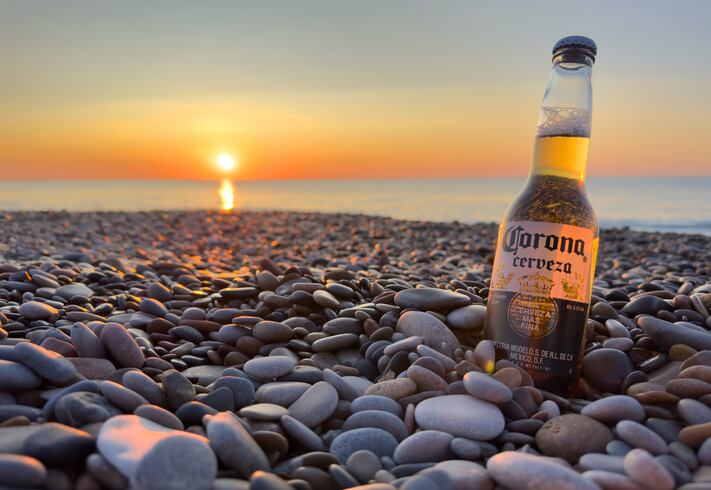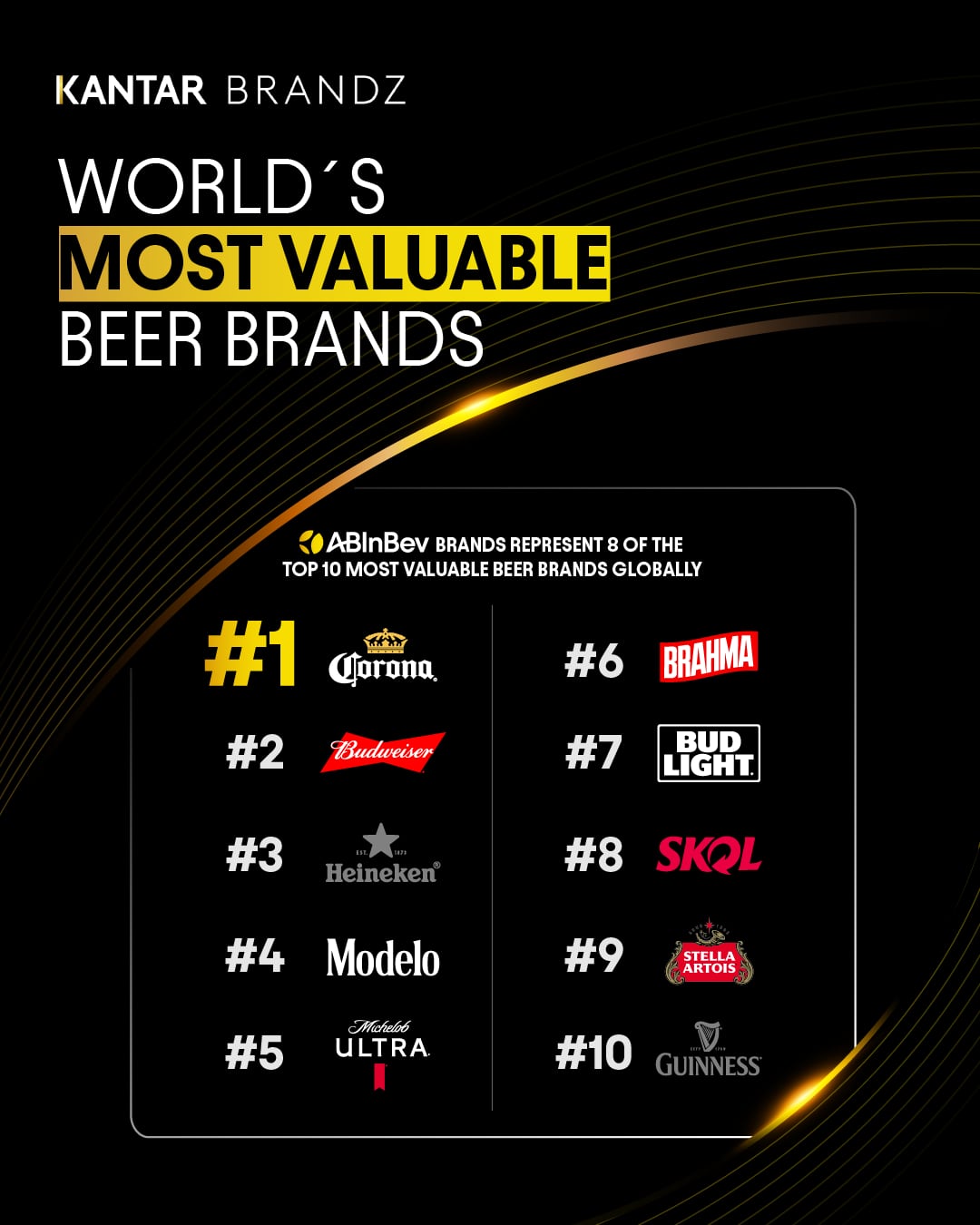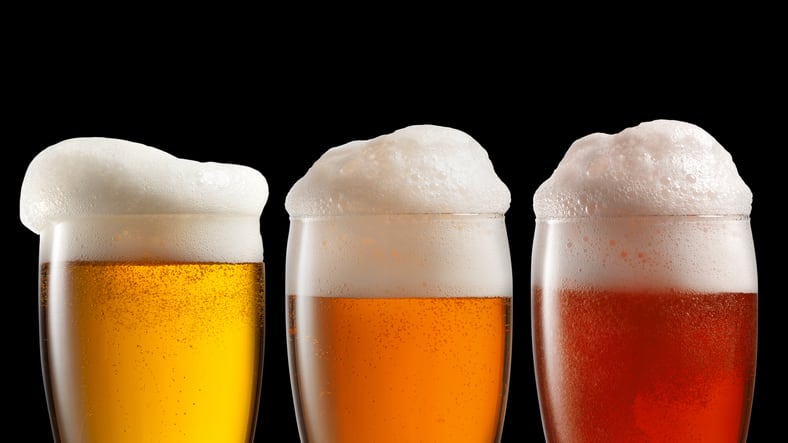Kantar’s BrandZ 2025 Most Valuable Global Brands report, released this week, lists the top 10 beer brands in the world.
The BrandZ report is published annually (celebrating its 20th anniversary this year) and ranks the world’s top brands across categories: based on a methodology which combines consumer perceptions with financial data and presents a holistic view of a brand’s value as a corporate asset.
So who comes out on top?
Taking the crown
For the second year running, AB InBev’s Corona has been crowned as the world’s most valuable beer brand.
One of the strengths of the Corona brand is that it’s not just about the brand, but also the ritual behind the brand, says BrandZ. Adding a slice of lime to the beer is an experience that elevates the moment.
The Corona brand has also worked hard to position itself as one aligned with nature: with a net-zero plastic footprint and a pledge to protect the world’s oceans and beaches from plastic pollution (‘Every sip of Corona is a celebration of nature and the beauty of the world around us’).

And 2024 was a strong one for Corona: with double-digit growth for Corona outside of its home market of Mexico and triple-digit growth of its no-alcohol brand Corona Cero.
Corona Cero was also the first beer brand to sponsor the Olympic Games: featuring at Paris 2024.
The momentum continues into 2025: Corona is celebrating its 100-year anniversary with events all over the world through its “Corona 100” platform.
“Corona’s success is rooted in its ability to build a brand that stands for something clear, and meaningfully different, said Martin Guerrieria, Global Head of Kantar BrandZ.
“To begin with, it has many well-known assets that people immediately associate the brand with: its distinctive logo, its font type with the crown motif, a heritage rooted in Mexico, and its beach-oriented ads. Not to mention the ritual of its distinctive ‘lime slice’ serve, which adds a product cue to everything Corona-related.”
But its position as the world’s most valuable beer brand for the second year in a row reflects long-term brand strategy and consistent investment in brand equity, said Guerrieria.
“In a category where many brands compete on similar themes, Corona has carved out a distinctive emotional space grounded in freedom, relaxation and escapism. It doesn’t rely on taste or product features alone, instead opting for a feeling of authenticity; Corona is brewed with 100% natural ingredients and was the first global beverage brand to reach net zero plastic footprint. Those proof points give credibility to its positioning and reinforce its relevance with today’s values-led consumers.
“This is what it means to be a meaningful, different and salient brand. Corona earns its strong consumer predisposition, justifies a premium price and helps protect brand value in a rapidly evolving market.”

Eight out of the top ten beer brands belong to AB InBev, the world’s largest brewer.
Corona is followed by Budweiser, the second most valuable beer brand in the world, Modelo at #4 and Michelob ULTRA at #5.
This year, Corona was named the world’s most valuable beer brand, with Michelob ULTRA rising to become the #5 most valuable beer brand and Stella Artois also moving up to #9.
Having 8 of the top 10 beer brands globally reflects our commitment to building brands for the long-term with a focus on consumer-centricity, consistency and effectiveness.”
Marcel Marcondes, Global Chief Marketing Officer, AB InBev
Heineken (#3) and Guinness (Diageo, #10) are the two brands outside of AB InBev’s dominance in the chart.
So could any of these other brands challenge Corona?
“Corona holds the lead as the world’s most valuable beer brand, owning a distinctive space in the category that few others occupy,” said Guerrieria.
“But Kantar data also highlights growing momentum amongst other key players.
“Budweiser ranks second globally and continues to perform well, particularly in markets like China where it delivers culturally resonant campaigns and taps into moments of national pride. It’s a brand that successfully combines global presence with strong local relevance and remains one to watch. Other brands have shown strong ability to grow market share and brand value through key developing markets like Heineken in Brazil and Guinness in Africa.
“Ultimately, the brands best placed for long-term growth will be those that establish a clear emotional identity and remain consistent in how they bring it to life for different audiences.”

